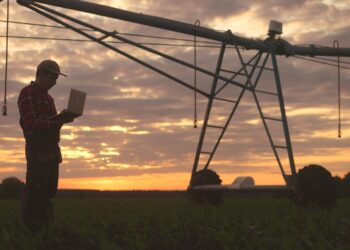Business leaders are trying to make Canada a major force in competitive skiing.
Canada’s national governing body for alpine, para-alpine and ski cross racing has overhauled its board of directors to include a number of top business leaders with a view to transforming Canada into a major force in competitive skiing by 2026.
Alpine Canada’s new 12-member board, which was unveiled at its AGM Tuesday, includes new chair Tim Dattels, who is a managing partner at global private equity firm TPG Capital Asia.
Along with the Canadian government, Own the Podium, and the Canadian Olympic Committee, Alpine Canada helps to develop Olympic, Paralympic, World Championship, and World Cup medalists.
The new board says it is basing the overhaul on the approach implemented by Tennis Canada several years ago, which drew on top business leaders to help make Canada a global tennis power.
“This is a talented group of leaders with a global reach who are committed to creating a plan to accelerate the development of ski racers,” Dattels said of a board which also includes Darryl White, chief executive officer of the Bank of Montreal; Mark Wiseman, senior managing director of global private equity giant BlackRock; Paul Desmarais III, senior vice-president of Power Corp.; and Don Lindsay, CEO of Teck Resources Ltd.
The skiing world is represented by Erik Guay, one of Canada’s most decorated downhill skiers and a former world champion.
Funding
Dattels said a key target for Alpine Canada, a non-profit organization, is to increase the amount of funding it receives, which has been stagnant since the Vancouver Olympics.
Alpine Canada saw sponsorship money drop by nearly $2 million in the year ending April 30. Contributions, which topped $1.4 million in the 2017 fiscal year, were less than $1 million for the second consecutive year.
“There have been a lot of youth coming up through the provincial organizations to generate a lot of the athletes, but when they hit higher levels, it is Alpine Canada that takes them there,” Erik Guay told The Globe and Mail. “We want to increase the funding, increase the governance and create a more holistic world for our high-performing athletes.”
Before the success of the likes of Bianca Andreescu, Tennis Canada implemented a similar overhaul, which aimed to increase funding, import international coaches, and allocate more capital to highly successful players.
“It’s amazing how [Tennis Canada] created a large funnel of athletes coming into the program at a young level, and then with the elite athlete, deeply focusing on the ones that are emerging at the top of the funnel, and creating very high performance standards for those athletes as well,” Dattels said in an interview with The Globe and Mail.
“The one thing that is quite consistent is that without the very best coaches in the world, wherever they are from, it is much harder for the athletes to get to that highest level.”
Currently, Alpine Canada has approximately 30 Canadian skiers who are top-ranked in the world. Among the best are Erik Read, the son of former “Crazy Canuck” Ken Read, who finished seventh in the season-opening World Cup grand slalom in Austria Sunday. In ski cross, Kelsey Serwa and Brady Leman were both gold medalists at the 2018 Winter Olympics.
“Looking ahead, we have some very good young racers coming into the higher echelon,” Guay said. “But it’s going to take some time, patience, and a lot of hard work to get them to that next level.”












